The Best Ecommerce Website Builders: A Simple Guide To Launch Your Online Store
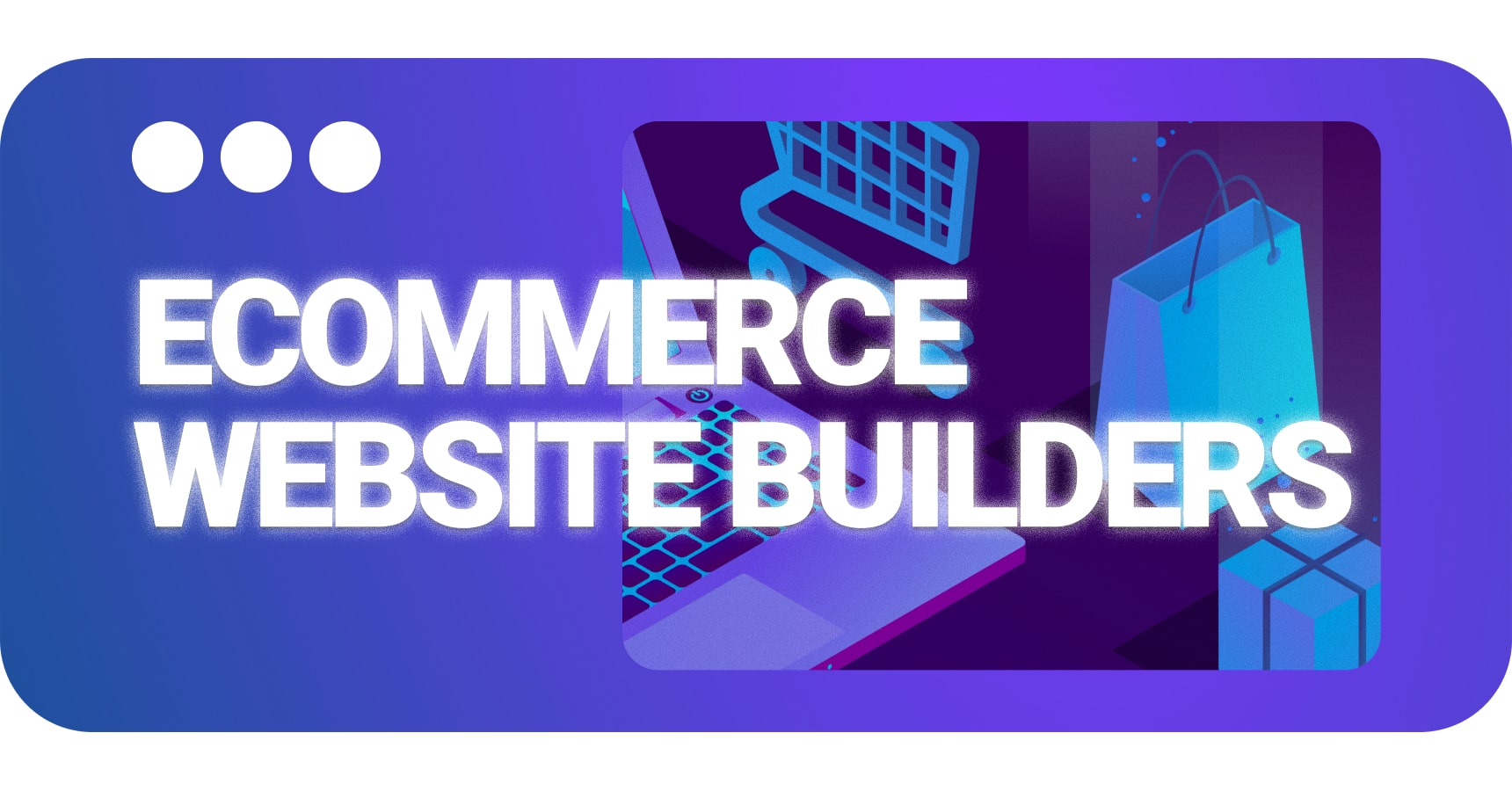
Starting an online store sounds exciting, right? But then you’re hit with a ton of choices: which platform should you use? What’s easy to manage? Which one won’t break the bank? If those questions are running through your mind, don’t worry – you’re not alone. We’re breaking down the best ecommerce website builders, so you can pick the one that fits your business like a glove.
Whether you’re selling handmade items, running a dropshipping business, or creating a full-on brand, the right ecommerce platform makes a big difference. This guide will help you figure out the top options and their pros and cons.
Let’s jump in.
What makes a great ecommerce website builder?
Before we get into the list, let’s talk about what actually makes a builder “great” for ecommerce. These are the things you should look out for:
- Easy to use: You shouldn’t need to code to get your store online.
- Good-looking templates: First impressions matter.
- Built-in ecommerce features: Shopping cart, secure payments, inventory tools, all that stuff.
- Mobile-friendly: Most people shop on their phones.
- SEO tools: So people can find your store on Google.
- Scalability: Your store should grow with your business.
- Dropshipping support: If you’re planning to sell without holding inventory.
Got it? Cool. Now, let’s see how today’s top builders stack up.
Quick comparison: Online store builders
Deep dive: Reviewing the top ecommerce platforms
Choosing the right ecommerce website builder is one of the most important steps when launching an online store. The platform you pick will shape how your store looks, how easily you can manage it, and how well it supports your growth. Below, we’ve reviewed some of the most trusted ecommerce platforms to help you find the best fit for your business goals.
Ecwid
⭐⭐⭐⭐⭐ (4.7/5 on G2)
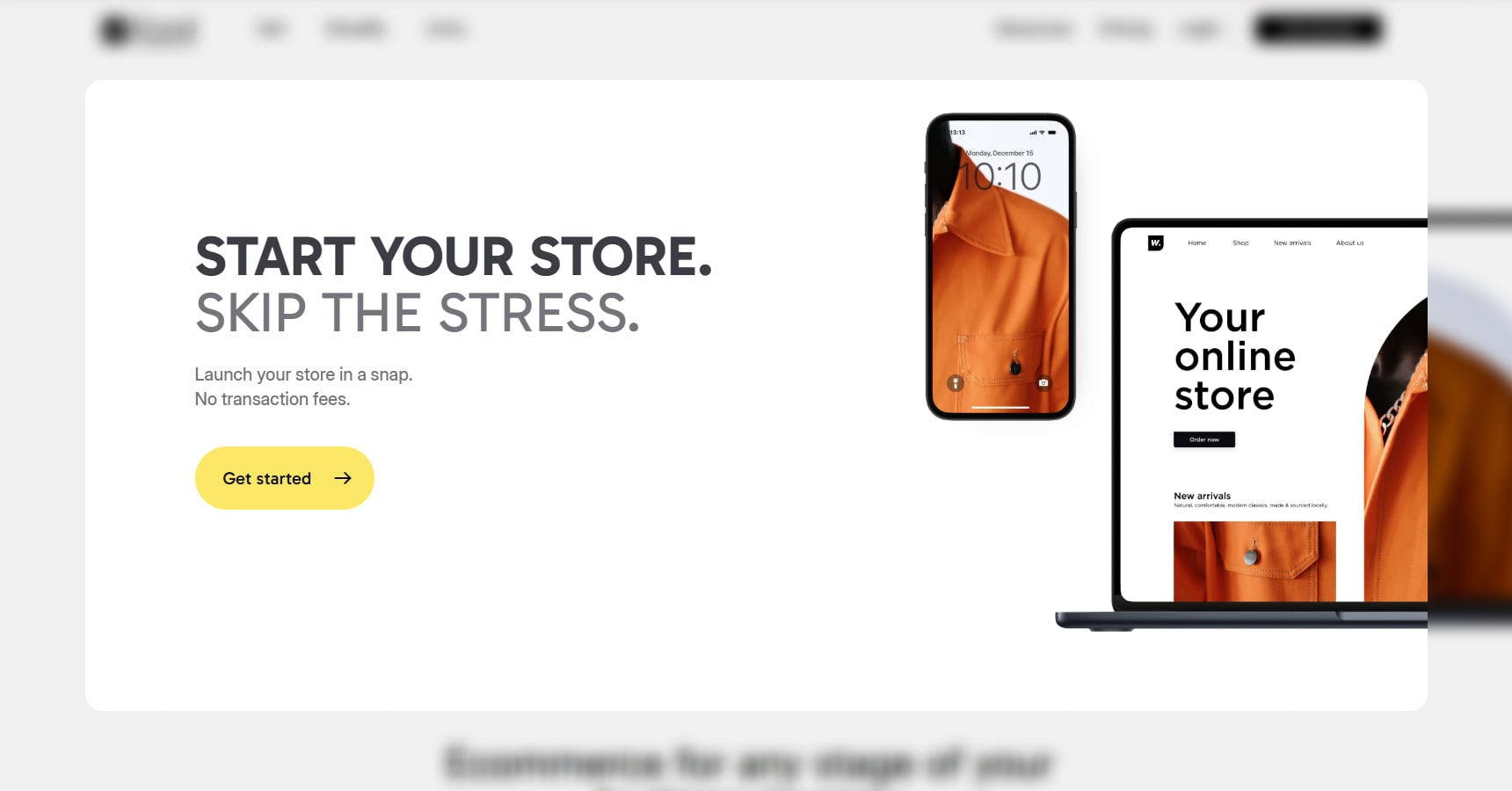
Ecwid is ideal if you already have a website and want to start selling. It adds an online store to your existing site without requiring a full rebuild. It’s easy to set up and works with most platforms, making it a smart choice for those who just want to add ecommerce without starting from scratch.
Pros:
- Works with any website
- Free plan available
- Easy to integrate
Cons: Not great for large stores
Best for: People who want to add a store to an existing site.
Hostinger
⭐⭐⭐⭐⭐ (4.7/5 on Trustpilot)
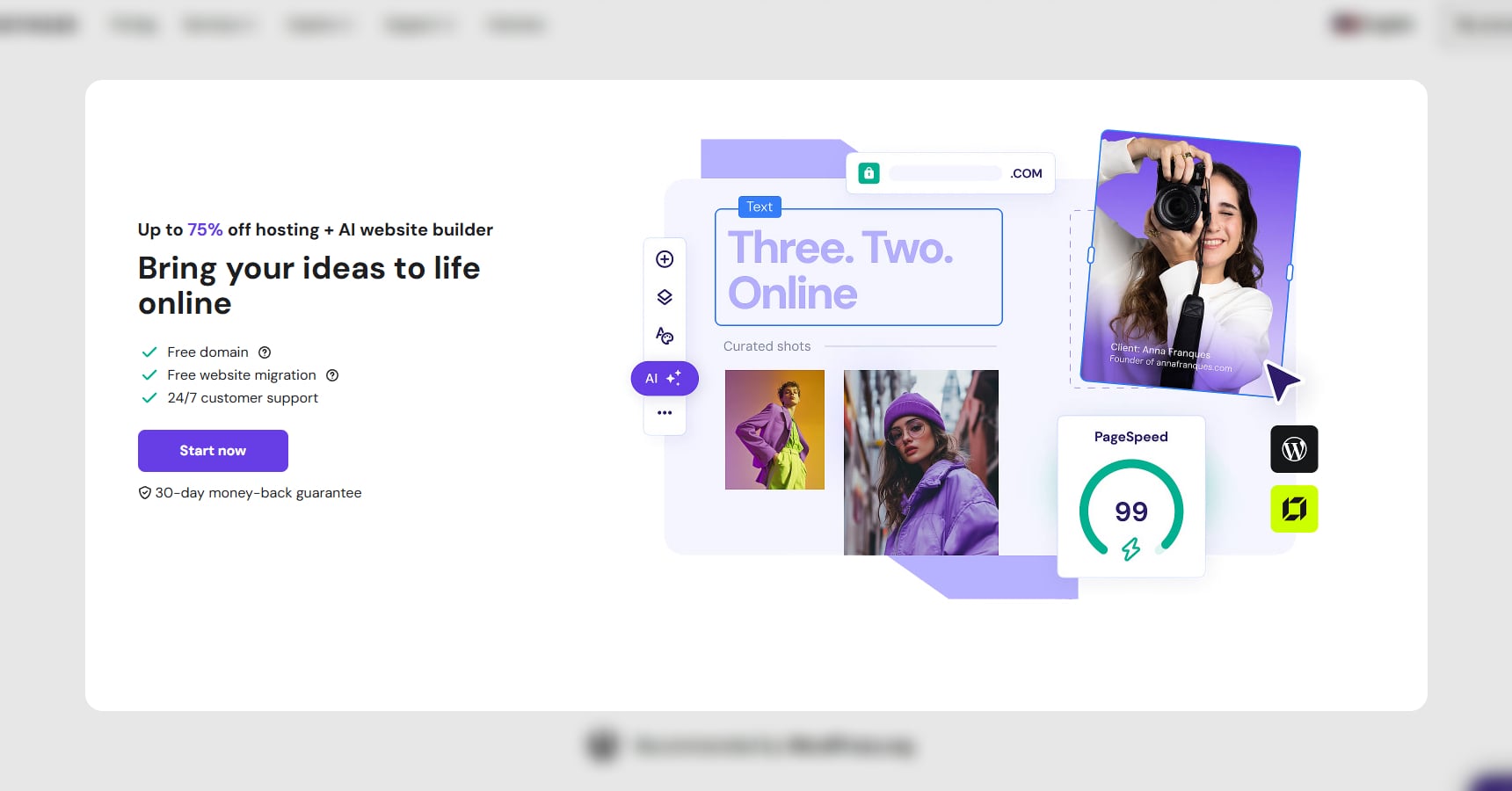
Hostinger offers a budget-friendly ecommerce solution built with beginners in mind. Its AI-powered tools and ready-made templates let you create an online store quickly, even with no experience. You can manage products, payments, and orders from a simple dashboard. It’s a solid option for small businesses wanting an easy, fast, and affordable way to sell online.
Pros:
- Beginner-friendly interface
- Built-in AI tools
- No transaction fees on sales
Cons:
- Limited advanced features (no subscriptions, abandoned cart recovery)
- Not ideal for scaling beyond 500 products
Best for: People starting small who want to keep costs low.
Squarespace
⭐⭐⭐⭐☆ (4.5/5 on G2)

Squarespace is a visually polished website builder that works especially well for creatives. If your brand relies on strong visuals – like photography, art, or design – this platform helps you stand out. It includes built-in ecommerce tools and templates that are modern and mobile-friendly. A good choice if you want your store to look as good as your products.
Pros:
- Stunning templates
- Easy to use
- Built-in marketing tools
Cons:
- Limited payment options
- Not ideal for large catalogs
Best for: Creatives who want a beautiful site without hassle.
WooCommerce
⭐⭐⭐⭐☆ (4.4/5 on G2)
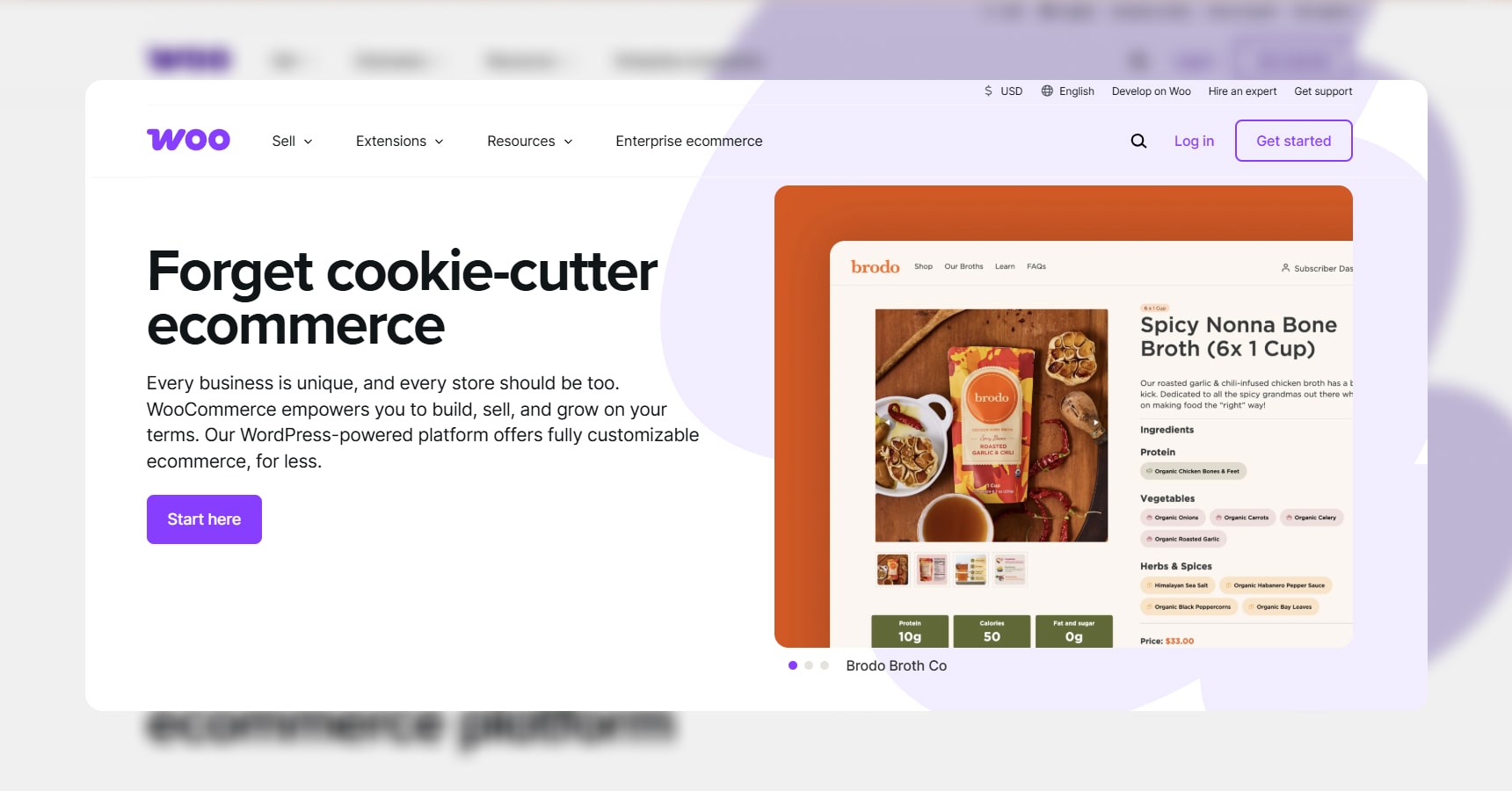
WooCommerce turns your WordPress site into a fully customizable store. It’s free to start, flexible, and supported by a massive library of plugins and themes. If you’re already using WordPress and want full control over design and features, WooCommerce gives you the tools – just be prepared for a bit of setup and ongoing management.
Pros:
- 100% customizable
- Tons of plugins and themes
- No monthly fees
Cons:
- You need to handle hosting + maintenance
- Setup can be tricky
Best for: DIY entrepreneurs and bloggers already using WordPress.
Shopify
⭐⭐⭐⭐☆ (4.4/5 on G2)

Shopify is designed specifically for ecommerce. It comes with everything you need to launch, manage, and grow a store – no hosting or coding required. From product listings to payments and shipping, it’s all streamlined. Best for users who want an all-in-one platform that handles the technical side so they can focus on selling.
Pros:
- Beginner-friendly
- Massive app store to add features
- Reliable and secure
Cons:
- Monthly fees add up fast
- Extra transaction fees unless you use Shopify Payments
Best for: Anyone who wants an all-in-one solution and doesn’t mind monthly fees.
Square
⭐⭐⭐⭐☆ (4.3/5 on Truspilot)

Square makes it easy to sell both online and offline. Its free ecommerce features integrate directly with Square’s popular point-of-sale systems, making it a great pick for retail shops or pop-up sellers. Setup is quick, and you don’t need a separate hosting plan. Perfect for businesses that want seamless in-person and online sales.
Pros:
- Free plan available
- Seamless online + offline integration
- Built-in payment processing
Cons: Limited design customization
Best for: Sellers who need both an online store and physical POS setup.
BigCommerce
⭐⭐⭐⭐☆ (4.2/5 on G2)
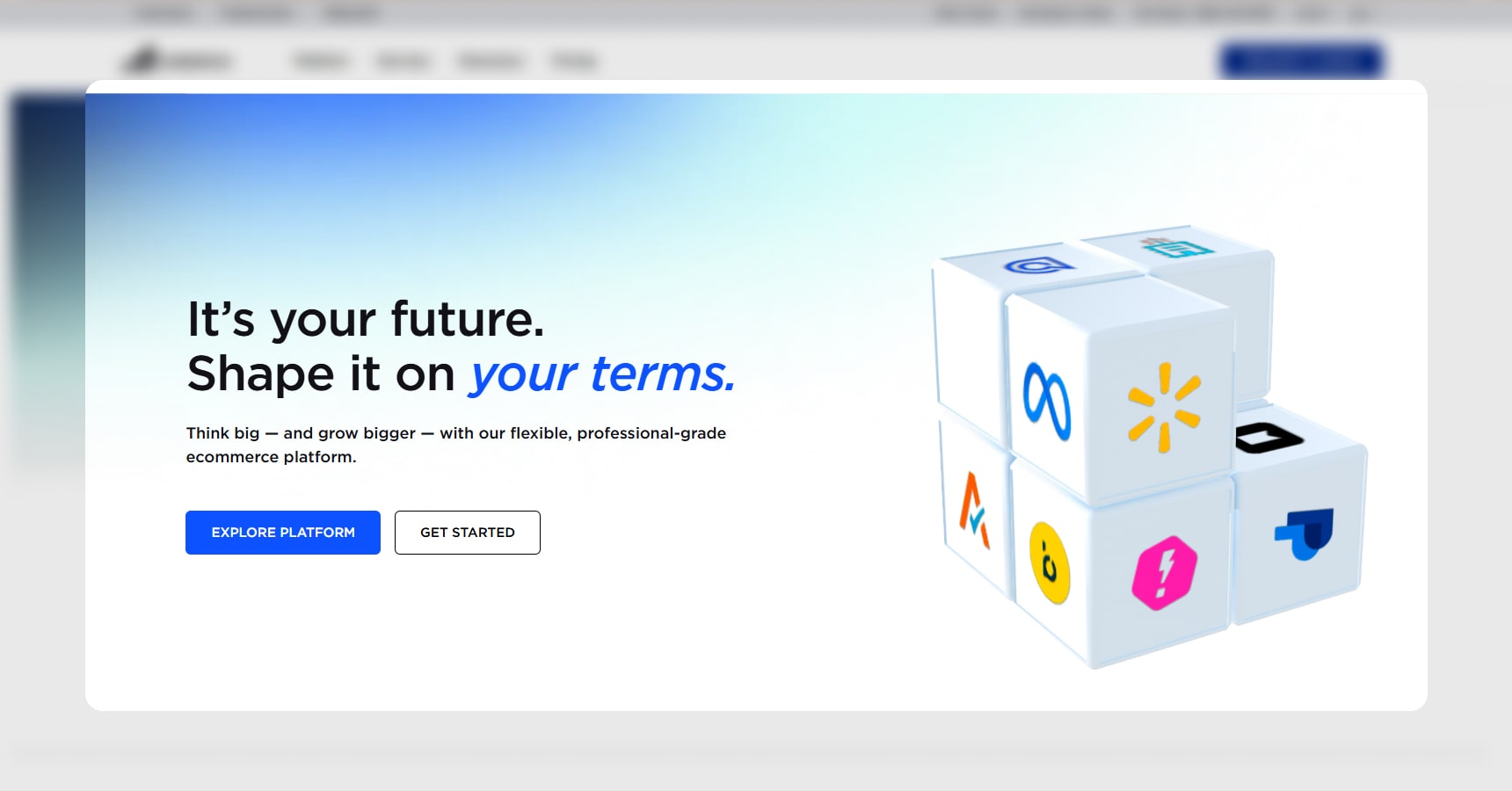
BigCommerce offers robust ecommerce features for growing businesses. It’s built to handle large inventories, complex product catalogs, and multiple sales channels. While it has more of a learning curve, it’s well-suited for established businesses aiming to scale. If you’re ready for advanced tools and built-in SEO features, BigCommerce might be a good fit.
Pros:
- Excellent SEO features
- No extra transaction fees
- Super scalable
Cons:
- Not very beginner-friendly
- More complex than others
Best for: Businesses looking to grow quickly and need advanced tools.
Wix
⭐⭐⭐⭐☆ (4.1/5 on Trustpilot)
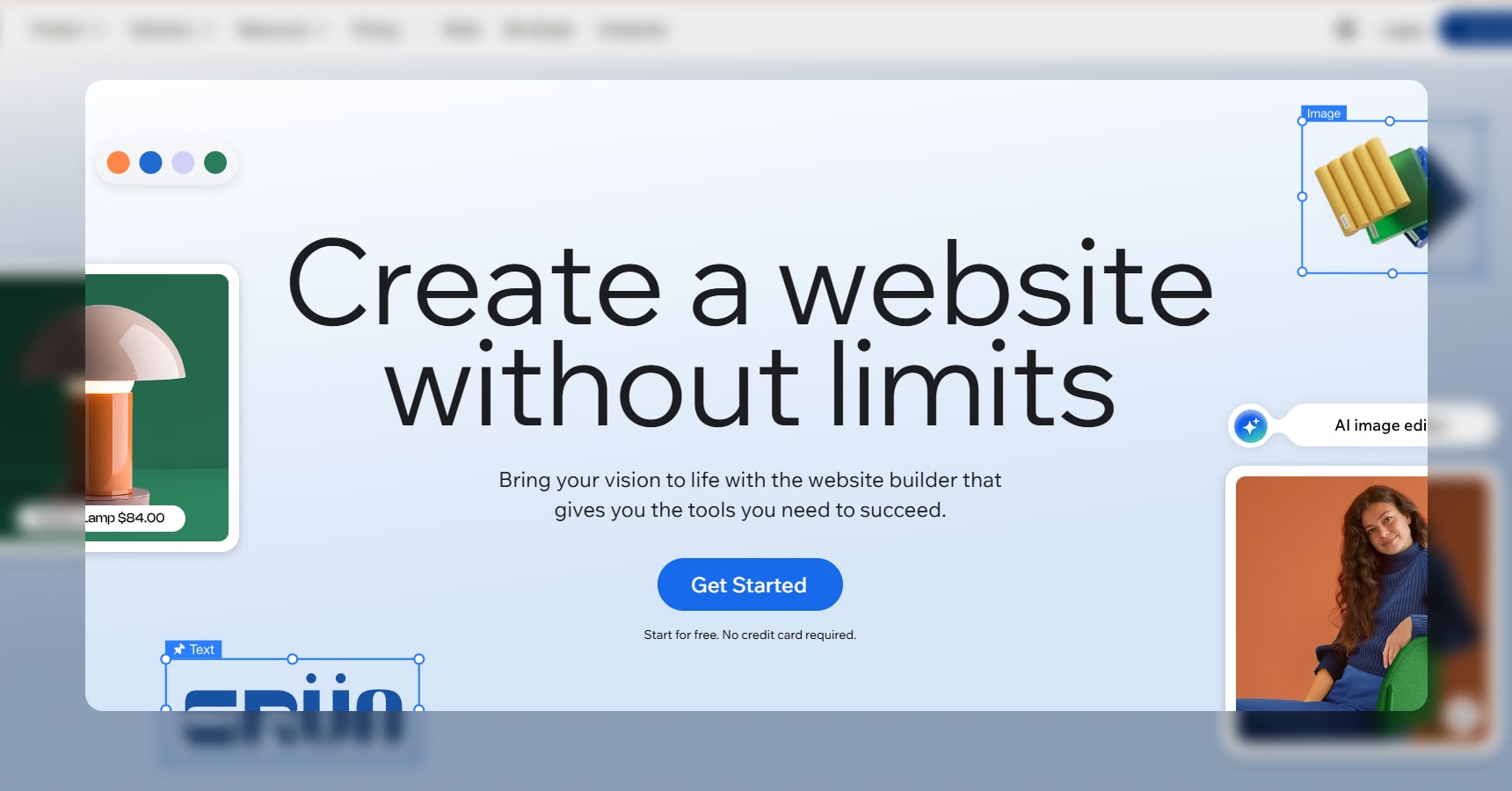
Wix makes building an online store feel approachable. Its drag-and-drop editor gives you the freedom to design without needing to code. You can start with a template and tweak everything to match your brand. It’s user-friendly and flexible, making it a good option for small stores or solo entrepreneurs starting from scratch.
Pros:
- Great design flexibility
- Easy drag-and-drop builder
- Good for smaller stores or creative brands
Cons: Can get expensive with add-ons
Best for: Visual brands or smaller shops that want creative control.
Each of these ecommerce platforms offers something unique, depending on how hands-on you want to be and how much customization you need. But once your store is set up, the real work begins – managing products, orders, and shipping. If you’re looking for a way to simplify all that, an automated dropshipping solution might be exactly what you need. Let’s take a look at how that works.
Special mention: Why AliDropship is a game-changer for dropshipping
If you’re leaning toward dropshipping, it’s important to understand how the model works – and why a platform like AliDropship makes the process so much easier.
At its core, dropshipping is a straightforward business model. You choose a niche, set up an online store, and fill it with products from a dropshipping supplier. When a customer places an order, you buy the product from the supplier, who handles all the packaging and shipping. Your profit comes from the difference between your retail price and the supplier’s cost. Best of all, you don’t need to manage inventory or worry about logistics.
What you should know about AliDropship is that it provides a fully automated dropshipping store.
Here’s what makes AliDropship stand out:
✅ A free, turnkey store built and packed with proven, high-converting products
✅ Automated order processing and shipment tracking
✅ Marketing tools to help you drive traffic and boost sales
✅ Easy scalability, making it ideal for building passive income
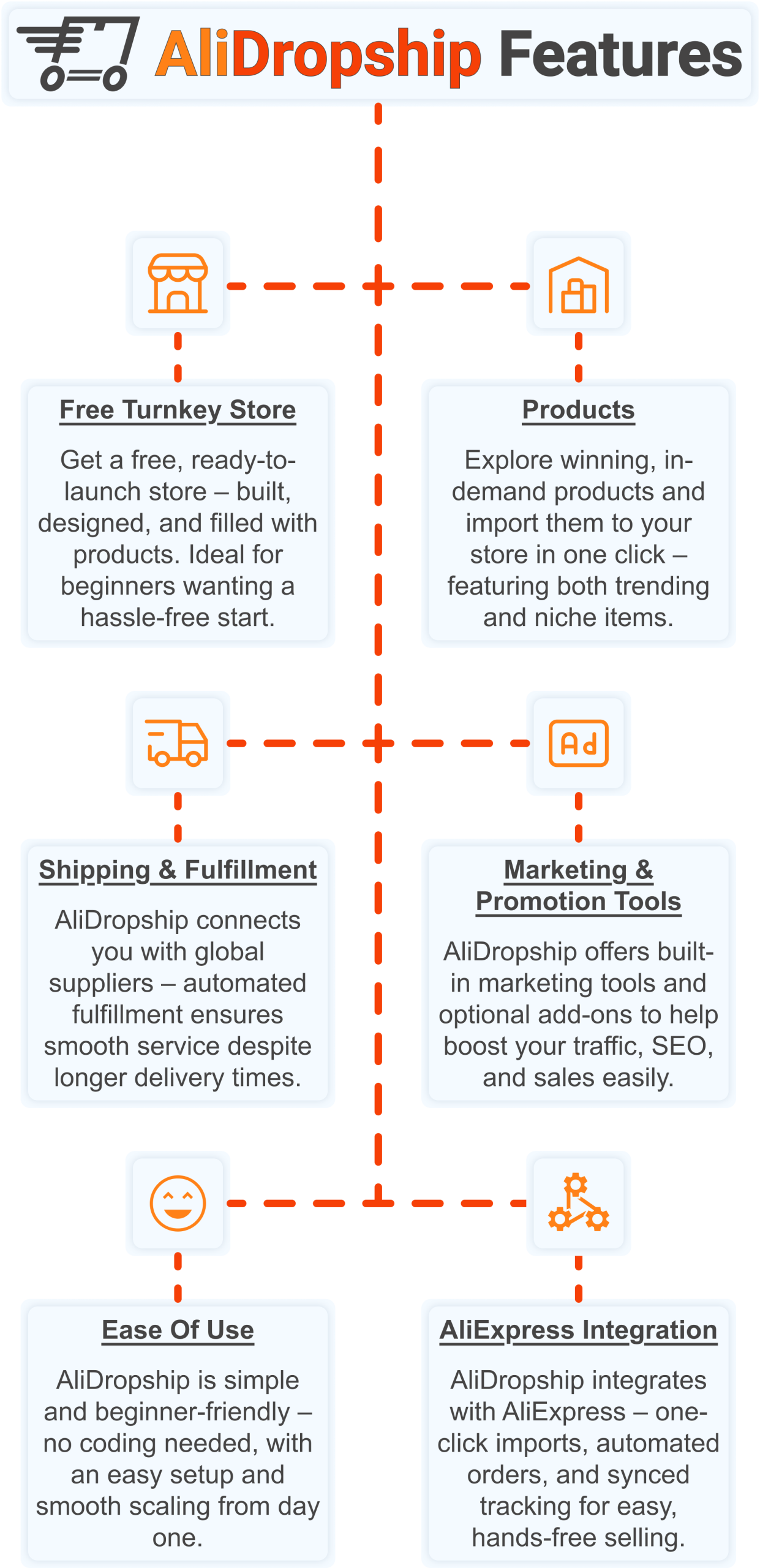
AliDropship is a smart choice if you want to:
- Launch with minimal risk
- Fully own your business and store
- Spend less time on fulfillment and more on growth
- Start strong and scale fast
If your goal is to build a profitable store without managing stock or shipping yourself, AliDropship deserves a serious look.
Best website builder for different needs
Here’s a quick guide to help match your needs with the best ecommerce website builder:
- Total beginner: AliDropship, Wix, or Hostinger
- Creative brand: Squarespace or Wix
- Scaling a big business: BigCommerce or Shopify
- Already using WordPress: WooCommerce or AliDropship
- Selling in-person too: Square
- Full dropshipping automation: AliDropship
Still unsure? Think about your goals, budget, and how much control you want.
How to choose the right ecommerce platform
Here’s a quick checklist to figure out which of the best ecommerce website builders is right for you:
- What’s your budget?
- How many products are you selling?
- Are you planning to dropship or handle inventory?
- Do you need custom features or are templates enough?
- What’s your tech comfort level?
Answering these helps you avoid analysis paralysis.
Start smart, grow fast
Picking the best ecommerce website builder doesn’t need to be stressful. The best one is the one that fits you and helps your store grow. And if dropshipping is your thing, AliDropship is really a no-brainer. You get automation, full control, and no monthly bills weighing you down.
Want a shortcut to a profitable online store? 🛒 AliDropship’s done-for-you setup and automation tools make it the smart choice for new entrepreneurs.









